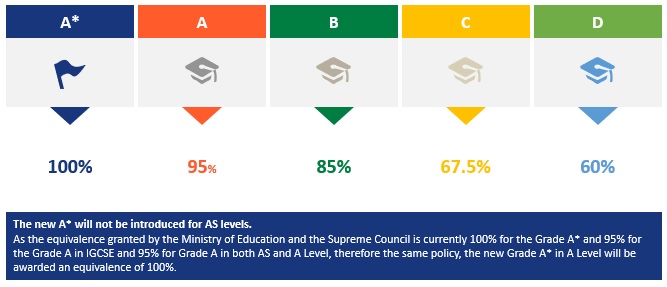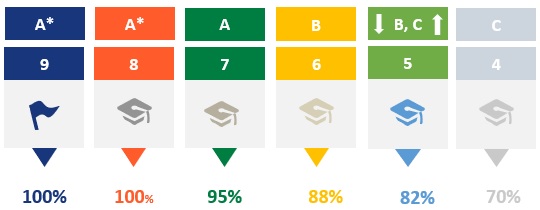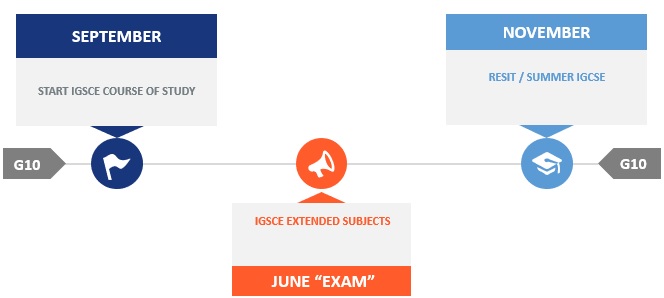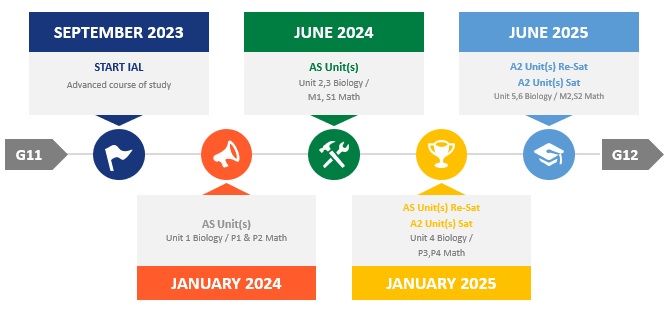The British Division | The International Schools of Kenana during Years G10, 11 and 12. It gives information about the courses plans to run and the choices that have to be made by students at this stage of their educational career. We will also provide you with a set of compulsory subjects, a set of optional subjects for students to choose from, and a set of guidelines for making these choices in keeping with the IGCSE /AS /AL levels Program.
ISK – British Division is based on the programmes offered by the University of Cambridge Local Examinations Syndicate (UCLES) and London University, Pearson Edexcel, and Oxford, all have offered IGCSE subjects as an integral part of their international provision for many years. It is important to note that the decision to study subjects as Edexcel, Oxford or Cambridge qualifications is based on the course that is more suitable and a greater benefit to the students and if it satisfies all the requirements to adequately prepare the students for the A Levels Program and meet the criteria of university entrance as decided by “School Administration” NOT students!
The International General Certificate of Secondary Education (IGCSE):
IGCSE provides a series of syllabi and assessment programmes to cover the two years of education between G10/11. Outstanding performance is awarded A*. our students are required to take eight IGCSE subjects by end of Grade 11. Assessment patterns differ slightly from subject to subject. Examination questions are written to provide students’ the chance to display what they know, rather than to find out what they do not know. Intended to be a positive experience for students, the examination pattern varies from subject to subject.

Overview OF YEAR 10, 11&12
IGCSE SUBJECTS OFFERED AT
THE INTERNATIONAL SCHOOLS OF KENANA
SUBJECT SELECTION GUIDELINES
Group One:
Compulsory Subjects
The Following are compulsory for all students’ in G10
- English as a Second Language
- Mathematics
- Chemistry
G10 Students to choose an extra subject (one of the optional subject below)
Optional Subjects:
- Physics*
- Biology
- Arabic as a First Language
IGCSE & GCSE STUDENTS ARE ACCEPTED IN PUBLIC UNIVERSITIES ACCORDING TO THE FOLLOWING TERM:
- The students must have passed 8 IGCSE(8 OLs) subjects with at least C/4 grade.
- All subjects must be studied as Extended curriculum and not Core curriculum
- The student must provide Tansik Office with maximum 5 examination session certificates that he/she has sit in the previous 3 years before applying for Tansik.
- The student need to pass other subjects other that 8 OLs subjects according the major he’s applying for.

For Medical Majors (as Medicine, Pharmacy, Dentistry, Physical Therapy, Veterinary, Nursery):

- 8 OLs must include English, Math, Biology, Chemistry & Physics.
- Biology AL with a minimum D grade Or 2 AS, One of them should be biology and the second AS must be one of the following: (Physics- Chemistry- Math) with a minimum D grade.
For Engineering, Computer Science, Fine Arts (Architecture Major):

- 8 OLs must include English, Math, Chemistry & Physics
- Mathematics AL with a minimum D grade Or 2 AS, One of them should be Mathematics and the second AS must be one of the following: (Physics- Chemistry- Accounting) with a minimum D grade.
For Faculties of Arts, Law, Political Science, Commerce, Mass Communication, Archaeology, Alsun:

- 8 OLs: English is a must + any 7 from the following:
– History- Geography German -French -Spanish -Physics -Chemistry – Biology – Human Biology – Business Studies – ICT – Computer Science -Travel & Tourism – Accounting –Economics – Sociology- Psychology – Art & Design.

- Arabic as a First Language is accepted.
- Information and Communication Technology and Computer Science are considered as 2 different subjects.
- Biology and Human Biology are considered as 2 different subjects.
- English Language is a must in G10.
NOTES


Grade Equivalence


A Linear Assessment Program


CHANGING COURSES AFTER THE START OF THE YEAR

- Every year students return to school, wanting to change their subjects. It may not be possible to make changes if places are not available in classes. Most of the information is available now, to help students make a decision before the start of academic year 2023-2024.
- To make a change at the start of Term One 2023 a student will need a good reason. The change must be approved by the School Headmistress, their parents and Teachers. Note that changes will not be permitted after week two of Term One.
IMPORTANT: Some courses may not be offered due to insufficient student enrolment. In addition, it is not always possible to accommodate all course selections due to scheduling conflicts. Every effort will be made to accommodate student preferences but sometimes compromise choices must be made by the students.
“SPECIAL” CANDIDATES
Special Consideration Candidates & Access Arrangements Candidates
The access arrangements and modified papers request are now open. Schools with candidates who have disabilities, learning difficulties, or who suffer from medical conditions that affect performance at the time of the examinations can apply in advance for an “Access Arrangement”. Student with permanent disability has to submit a request for every exams series – one per all syllabus.
There are two groups of access arrangements:
Modified Question paper Application
Modified paper is allowed for candidates with visual perception difficulties .
Other Access Arrangements
Access arrangements allow candidates with substantial and long-term disabilities access to the examinations including:
- Extra time allowance;
- Provision of specially-adapted papers;
- Assistance with reading or writing.

SPECIAL CONSIDERATION
Candidates present but disadvantaged
Candidates present but disadvantaged
- For candidates present for an assessment, but disadvantaged, the size of the allowance depends on the nature of the misfortune.
- The maximum allowance is 5% of the total raw mark for the component concerned.


CONCLUSION
Evaluation…and please don’t forget your copy of the Making Your Life Easier Handbook
Over to You
If you feel a little bit lost now, it’s understandable. Don’t feel too rushed, you still have time to gather the facts that you need to make proper choices. Listen carefully to the information provided by MIS Administration, the subject teachers and current Year 11 students in the sessions set up for this purpose.
Read through this booklet carefully and discuss it with your parents. They will have to sign the Options Form so make sure that you discuss your choices with them. Who can help you further?
Finally, it is important at all levels to look ahead and make a careful and planned choice of subjects. Please read the SUBJECT booklet carefully BEFORE making your choices if you know the career you are interested in, you need to make sure you have the right subjects or keep a broad base and study a range of subjects that interest you.
